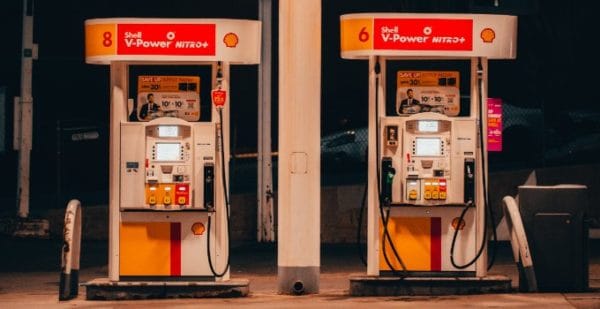Do You Know What Octane Fuel to Use at the Gas Pump?

Ever wondered what octane ratings on the gas pump mean?
You’re not alone. If you’re looking to save some money, you’ve probably always selected the cheapest option. Or, maybe you assume the higher price is indicative of better quality. Or you might have even heard that a higher octane means faster, more efficient performance. But how are you supposed to know which option to choose?
Don’t worry: we have you covered. By the end of this story, you’ll know just what octane means and what you should be putting in your car.
Related: 5 Ways to Get Better Gas Mileage In Any Car

High performance cars will likely require premium fuel. Their less powerful siblings, however, are likely fine with regular gas. Photo: Dawn Gibson-Thigpen
What Octane Means
The octane rating of fuel is a measure of how heat resistant that fuel is. That means that different octanes of fuel changes how quickly the air-fuel mixture in the engine will ignite.
Engines that are powered by gasoline work by combining a mixture of air and fuel at carefully timed intervals, but that air-fuel mixture is compressed before it’s ignited. That compression alters how much energy is extracted from the mixture.
Each engine functions differently, so you may need to opt for a different octane of gasoline at the pump to keep your car performing the way it should. But how do you know what octane to choose?
Related: What Can You Do to Stop Hot Car Deaths?

When in doubt, your owners manual will guide you on the right fuel for your car. Photo: Natalie Merola
Easy Answer: Check What Your Car’s Manufacturer Recommends: Recommended or Required
Thankfully, your car’s manufacturer will tell you what it needs. You can generally find the recommended octane ratings in the owner’s manual, but that can take some heavy-duty reading to find. And, if your car NEEDS a higher octane fuel, the manufacturer will use the term ‘required’ when it comes to octane.
Most cars also post the octane rating on the fuel cap or the fuel filler door. It will likely read “XX Octane Minimum,” “XX Octane,” or “XX AKL.” As the designation suggests, this is the recommendation for the type of fuel to put in your car.
If you’re driving a pretty standard ride, it’s not likely that you’ll need anything more than the regular grade of gasoline. If your car is turbocharged or supercharged, though, you’ll likely move up to mid-grade or premium. Those engines create higher compression levels, so you need a fuel that can handle the enhanced performance of your car.
Related: Buying Tires: 10 Tips To Buy Smarter and Save Money

The Mazda 3 Turbo is designed to use either regular or premium fuel, though with premium fuel the horsepower output increases from 227 to 250, making a good case for using premium. Photo: Scotty Reiss
Does A Higher Octane Mean More Horsepower or Better MPG?
There are some pretty regular misunderstandings about what a higher octane does. Because those higher octanes are associated with increased performance, i.e. horsepower generated and fuel economy, in turbo or supercharged engines, some people believe that a higher octane will translate to more performance on all cars. That isn’t always the case.
In some instances, using a 91- or 93-octane fuel in a car that only needs 85- or 87-octane can result in a very marginal increase in engine performance — but it’s usually not anything noticeable. If you’re interested in seeing if you can extract a little extra performance, try running a few tanks of each octane of gasoline, from full to empty. Check your mileage, range, and more. But for the most part, you’re not going to notice anything crazy.

Which unleaded gasoline does your car require?
What Happens if I Use the Wrong Octane?
If you use a higher octane fuel than your engine calls for, you’re generally in the clear. Most engines have no issues running a higher octane, though it isn’t always recommended. If you do it a lot, though, you might end up causing damage over the long term.
But if your car requires a higher octane and you use a lower one, you might have a problem. Modern cars are usually well-equipped to deal with a lower octane and use sensors to prevent any immediate damage to the engine, but you’ll likely accumulate problems over the long term. It’ll prevent your car from meeting its stated fuel economy, and you may experience engine knocking, which is just as it sounds: a knocking noise will come from your engine because it’s not being run at its optimal performance.
At the end of the day, the answer is simple: use what your engine asks you to use, and you won’t have any issues.
